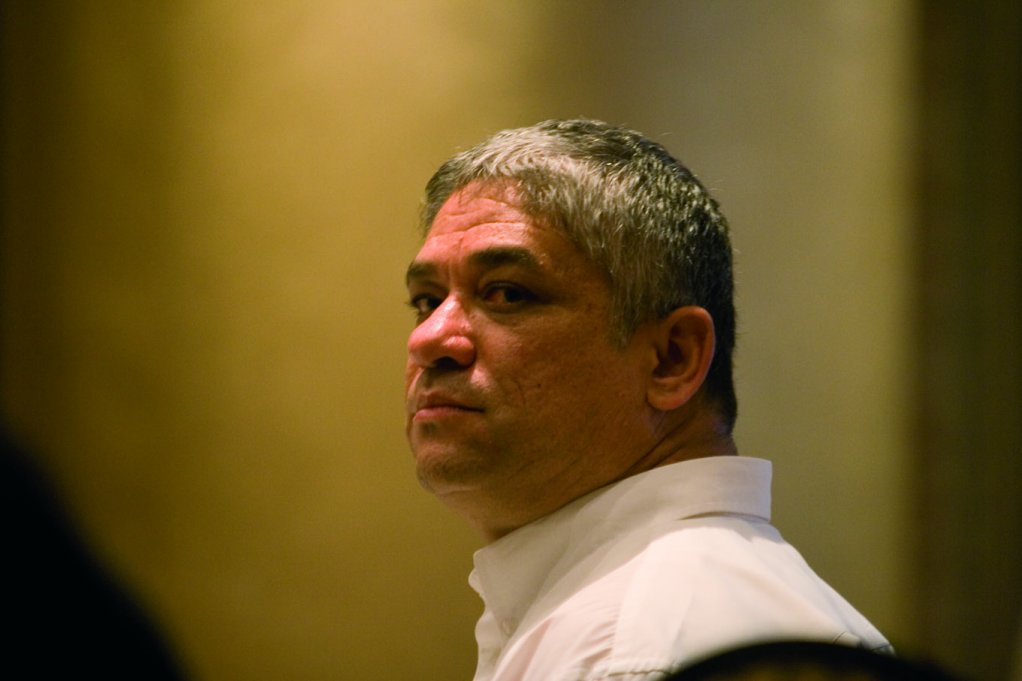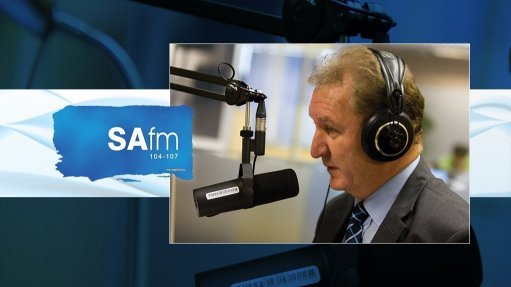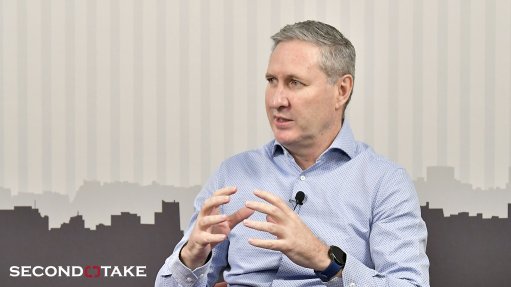Building a new social consensus requires bold leadership
By: Alistair Smith
The passing of Nelson Mandela marks the end of an era and has forced the nation to pause and reflect on our last 20 years of travel along a path of democracy. The socio- economic challenges we face are enormous. It will require Madiba leadership values and inspi- ration to address these – values of bold, frank, visionary, wise and conciliatory leadership.
South Africa’s postapartheid labour relations framework and its family of institutions, which includes the National Economic Development and Labour Council (Nedlac), bargaining coun- cils, the Commission for Conciliation, Media- tion and Arbitration and the sector education and training authorities (Setas), were all established in the context of the struggle for democracy, participation and giving social partners voice. This time was inspired by a deep grasp of the importance of social dialogue and of the merit in seeking consensus and win-win solutions – a commitment to move away from the highly conflictual relationships under apartheid towards social partnership.
These institutions occupy a highly charged but unique space between labour, business and government. These were envisaged as spaces for negotiation, consultation, information sharing, joint problem-solving and cooperation. They are also institutions that act like shock absorbers, soaking up the necessary conflict generated in a country marked by high levels of unemployment, inequality and poverty, where extreme destitution even of those who have jobs, goes hand in hand with extreme excess and wealth. These institutions are now under pressure to find simple formulas for employment creation.
The current state of social dialogue, whether reflected in Nedlac, the bargaining councils or the Setas, is definitely not what we envisaged when we started our democratic journey. The drivers and underlying causes of the instability in the South African labour market are complex. The drivers of unemployment in South Africa are equally complex. However there is a view, prevalent in some quarters, which attribute the current upheavals in our labour market to the nature of our labour relations legal frame- work and institutional arrangements.
But I would argue that many of our recent upheavals have less to do with the specific design of this or that law or institution and more to do with the capacity, conduct and commitment of the social actors involved.
This is a more intractable challenge for the future of social dialogue, tripartism and collec- tive bargaining. It calls for strong leadership and a paradigm shift away from the culture of adversarialism and a greater focus on building relationships and networks of trust and collabo- ration rather than just legislative intervention and institutional redesign.
As a start, it requires a deeper appreciation and a more open and frank conversation about the underlying causes of the apparent failures we are currently witnessing. This conversation must be less ideological, less fundamentalist and orthodox and more pragmatic and evidence based.
In times of crisis, it appears that many governments prefer to take the political risk of going it alone rather than engage in genuine dialogue. But the evidence shows that this is a short-sighted view. Interestingly enough, the International Monetary Fund now recognises the significance of social dialogue and social compacting.
The ideal preconditions for successful social dialogue include a willing government that is committed to engaging social partners in a meaningful way. It also requires social partners who are strongly organised, competent and committed to engaging in consensus-seeking forms of engagement and integrative bargaining. And, of course, it requires well-resourced and well-managed institutions to administer and support the processes of engagement. Needless to say, on many of these counts, we fall far short.
Presently, it seems that the social partners are incapable of making or unwilling to make the types of changes that are required to ensure more effective forms of social dialogue. Trust is practically nonexistent, while the willingness to listen and develop a shared understanding of our socioeconomic dilemmas appears to be an ever-diminishing prospect.
Another very worrying trend is the organisational weakening and fragmentation within the labour and business constituencies on the one hand and, on the other, the lack of effective implementation and coordination within government. The net effect is that social dialogue is severely weakened.
It is therefore extremely unfortunate that precisely when we need social dialogue, the role and relevance of our institutions are under siege and rendered incapable of responding to the scale and urgency of the challenges at hand.
When we celebrated the dawn of democracy, many of us understood that our socioeconomic legacy – as manifested in deep structural unemployment, extreme inequality, high levels of poverty and serious backlogs in social goods and services – would require a massive collective effort. We were filled with a sense of optimism and vision. As a nation, we committed ourselves to tripartism and social dialogue as the main strategy for governing our labour market and our economy and confronting our socio- economic challenges. Our labour relations system was born under these circumstances, when there was a level of optimism, passion and political will, coupled with a sense that business, government and labour would cooperate to ensure growth and equity.
Fast forward and we find a society still mired in unemployment, poverty and inequality. Corruption is a scourge and social service delivery is faltering. Our economy is not growing fast enough and it is very likely that we will not reach the employment goals that we have set in the New Growth Path and the National Development Plan.
For some, the recent turbulence in our labour market is evidence that our laws and institutions have failed us to the extent that we should throw the industrial relations framework and social dialogue babies out with the bathwater. But, from where I sit, I don’t think we are witnessing a wholesale collapse of our industrial relations system, or the inevitable demise of social dialogue and tripartism.
Yes, there are problems. But the solutions lie less in the legal framework and institutions, and more in the way that government, organised business and labour interact. A successful South Africa depends mostly on the commitment and capacity of the actors who sit at the main table. It is also, if truth be told, about what is on the table. What are the trade-offs? Who can commit to what? Who is prepared to make compromises in the interests of the greater good?
Building a new social consensus is going to require bold leadership, common sense, cool heads and a willingness to listen and make compromises. If we as the social partners are not prepared to do this, we are at risk of continuing down a path that at best produces more of the same or being caught up in a spiral of increased social conflict and possibly repression and a reversal of our democratic gains.
Smith is the Nedlac executive director and presented these views at the recent Metal and Engineering Industries Bargaining Council Jobs Summit 2014.
Comments
Announcements
What's On
Subscribe to improve your user experience...
Option 1 (equivalent of R125 a month):
Receive a weekly copy of Creamer Media's Engineering News & Mining Weekly magazine
(print copy for those in South Africa and e-magazine for those outside of South Africa)
Receive daily email newsletters
Access to full search results
Access archive of magazine back copies
Access to Projects in Progress
Access to ONE Research Report of your choice in PDF format
Option 2 (equivalent of R375 a month):
All benefits from Option 1
PLUS
Access to Creamer Media's Research Channel Africa for ALL Research Reports, in PDF format, on various industrial and mining sectors
including Electricity; Water; Energy Transition; Hydrogen; Roads, Rail and Ports; Coal; Gold; Platinum; Battery Metals; etc.
Already a subscriber?
Forgotten your password?
Receive weekly copy of Creamer Media's Engineering News & Mining Weekly magazine (print copy for those in South Africa and e-magazine for those outside of South Africa)
➕
Recieve daily email newsletters
➕
Access to full search results
➕
Access archive of magazine back copies
➕
Access to Projects in Progress
➕
Access to ONE Research Report of your choice in PDF format
RESEARCH CHANNEL AFRICA
R4500 (equivalent of R375 a month)
SUBSCRIBEAll benefits from Option 1
➕
Access to Creamer Media's Research Channel Africa for ALL Research Reports on various industrial and mining sectors, in PDF format, including on:
Electricity
➕
Water
➕
Energy Transition
➕
Hydrogen
➕
Roads, Rail and Ports
➕
Coal
➕
Gold
➕
Platinum
➕
Battery Metals
➕
etc.
Receive all benefits from Option 1 or Option 2 delivered to numerous people at your company
➕
Multiple User names and Passwords for simultaneous log-ins
➕
Intranet integration access to all in your organisation



















